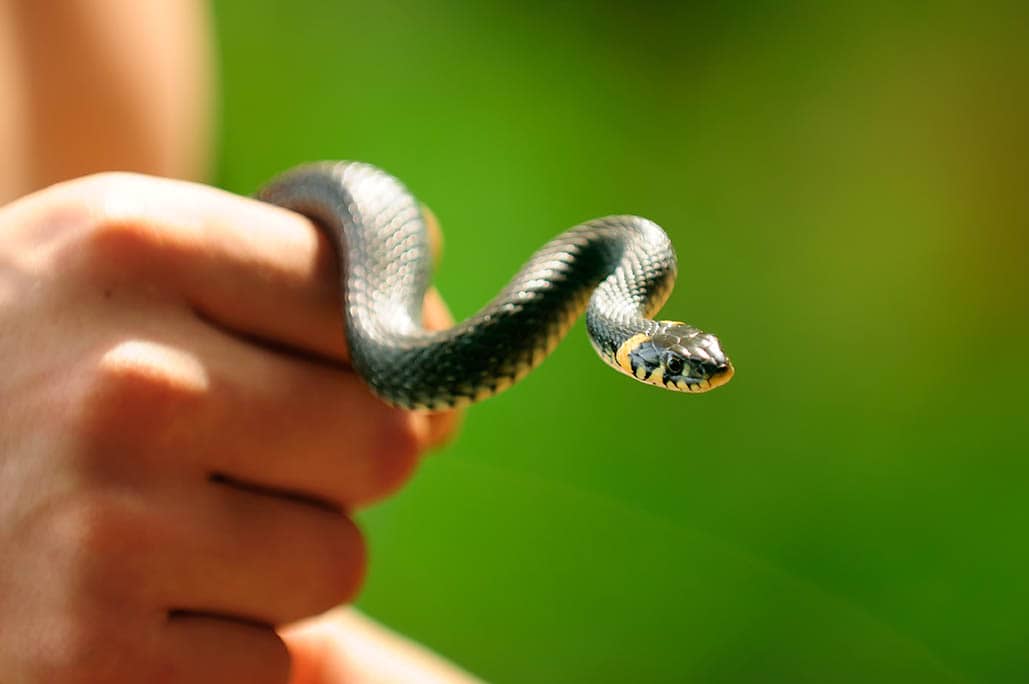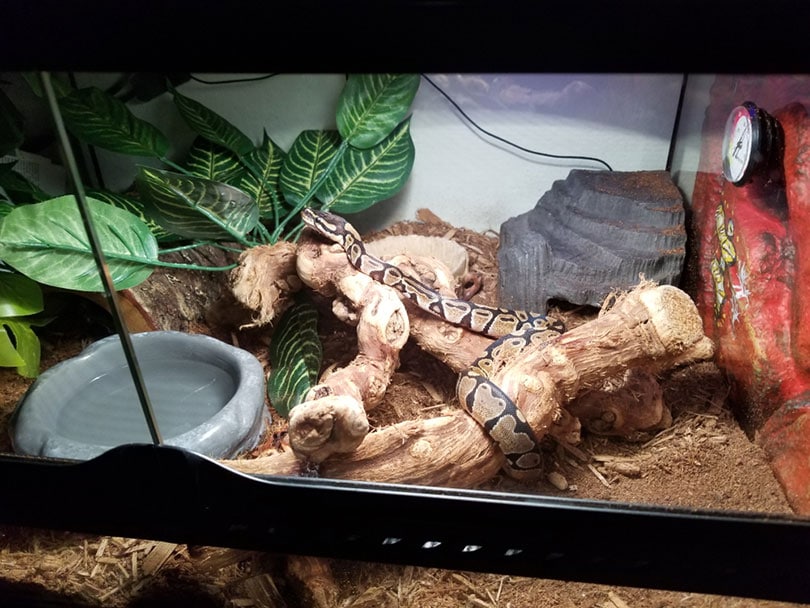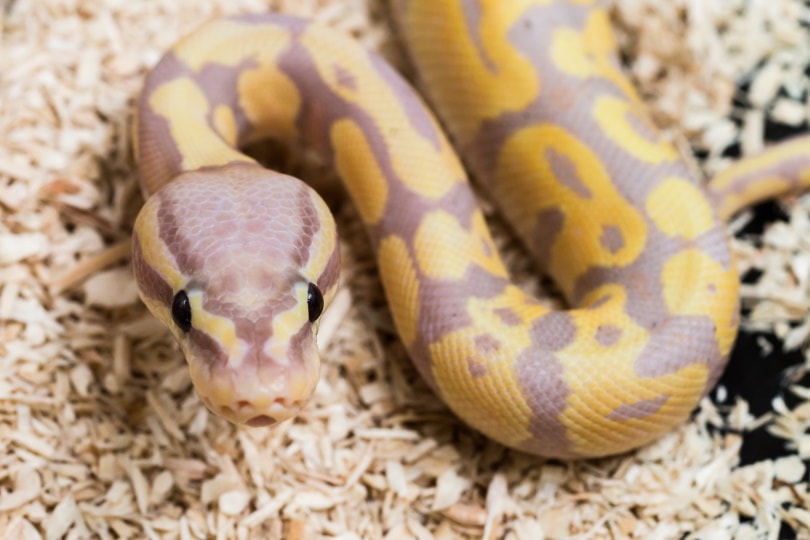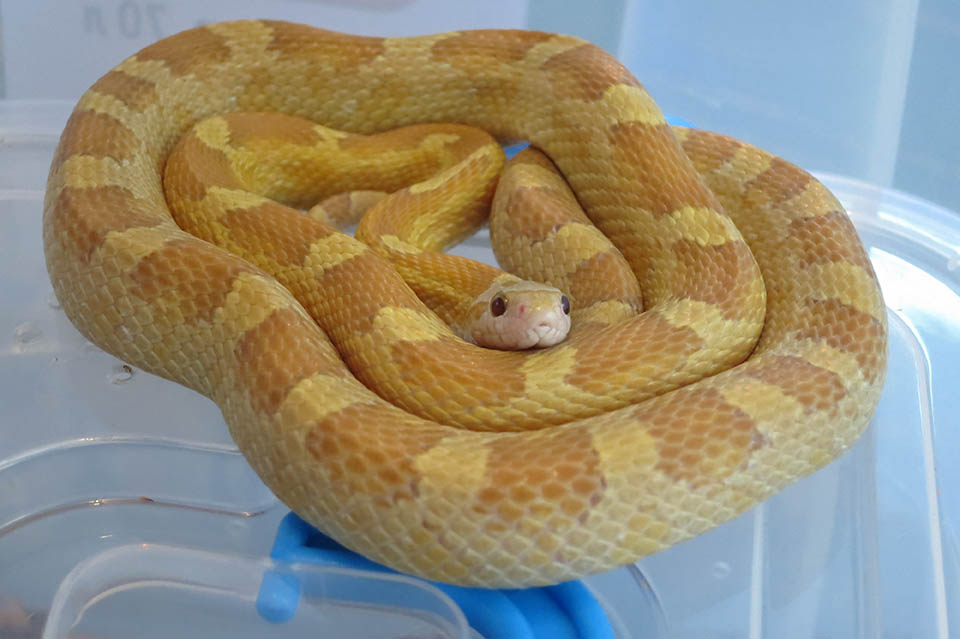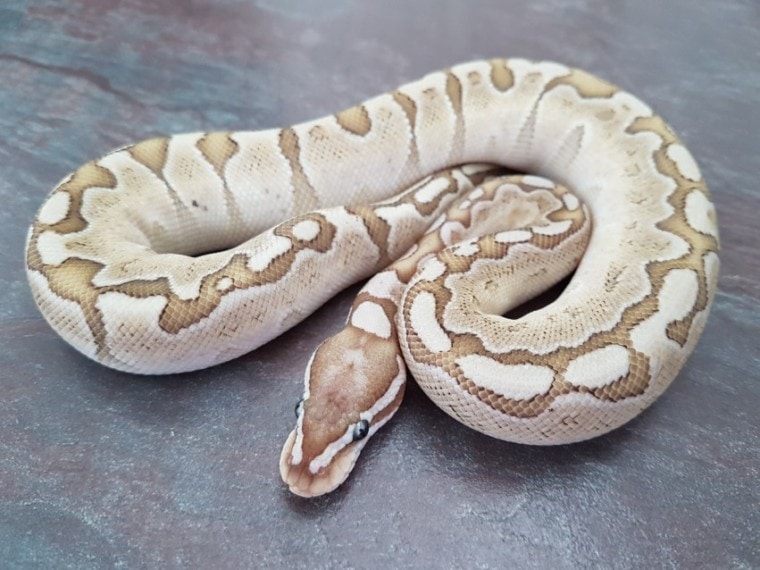
Click Below to Skip Ahead
Ball pythons are a great sociable species of snake that are often kept by beginners. These are fast-growing snakes that do most of their growing and development within the first few years of their life. On average, ball pythons grow 2–3 inches per month until they reach 3 to 3.5 feet in length for males and 4 to 6 feet for females.
By the time a ball python has reached 1 year of age, they are usually three times its size and doubled in weight. A ball python’s growth rate may vary depending on certain factors which we will discuss in this article.
How Long Does It Take For a Ball Python To Grow?
Captive raised ball pythons will typically reach their adult size at 3–5 years of age, and their length will depend on their gender. Male ball pythons typically reach around 3 to 3.5 feet in length, whereas females grow larger and faster than males and can reach 4 to 6 feet long.
Hatchlings will grow rapidly in the right conditions during the first 12 months, with an average growth rate of 2–3 inches per month. Most ball pythons will reach around 2 feet at 1 year old.
| Life Stage | Size (Females) | Size (Males) |
| Hatchling | 13 to 18 inches (33–46 cm) | 10 to 17 inches (25–43 cm) |
| Juvenile | 20 to 27 inches (50-68 cm) | 20 to 25 inches (60-63 cm) |
| 1 year | 2 feet (61 cm) | 1.5 to 2 feet (46 – 61 cm) |
| 2 years | 2.5 to 3 feet (76 – 91 cm) | 2 to 3 feet (61 – 91 cm) |
| 3 years | 3 to 5 feet (91 – 152 cm) | 2.5 to 3.5 feet (76 – 106 cm) |
| 4 years | 4 to 6 feet (122 – 183 cm) | 3 to 3.5 feet (91 – 106 cm) |
Male ball pythons may grow noticeably slower than female ball pythons because females are larger than males. After 1 year, your ball python’s growth will start to slow down till they reach its final adult size.
Some ball pythons will grow slower than others depending on genetic factors, diet, and living conditions. A healthy ball python will have a steady growth rate during the first 3 to 4 years of its life.
Male vs Female Ball Python Growth
Female ball pythons grow faster than males because they have a genetically faster growth rate. Most female ball pythons reach 4 to 6 feet long and can weigh up to 7 pounds.
So, if you notice that your ball python is growing rapidly and increasing in weight, they are most likely female. Ball pythons are sexually dimorphic; females are naturally longer and heavier than males, however, they are both similar in weight and length after they hatch.
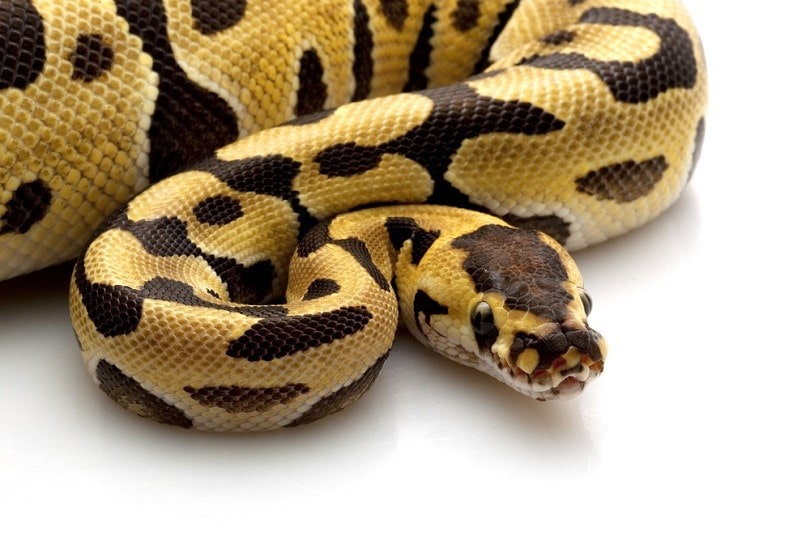
How Do Ball Pythons Grow?
Like all snakes, ball pythons shed their skin for new growth which is why you will notice that young ball pythons shed a lot during the main growth stages. Healthy ball pythons will shed their skin every 4 to 6 weeks when they outgrow their skin.
The shedding process usually slows down once the ball python is mature, but hatchlings and juveniles shed frequently which is why they grow so fast. Adult ball pythons will only shed their skin for a replacement every 6 to 8 weeks because they are fully grown around 4 years of age.
Why Your Ball Python Is Growing Slowly
The growth rate for ball pythons is influenced by their living conditions, diet, eating habits, and overall care. Malnourishment is a common reason ball pythons may fail to grow quickly, which means they are not fed the correctly sized prey or if they are fed too frequently or too infrequently.
Poor living conditions can also cause your ball python to feel stressed which will affect their appetite and well-being, leading to slower growth. Another common reason for ball pythons to grow slowly is if they are males. Male ball pythons do not grow as rapidly as females, especially once they become a juvenile and subadult.
Ball pythons will grow at different rates and genetics play a role in their adult size and growth. You can determine how fast your ball python is growing by comparing their hatch weight and length to their monthly length and weight gain along with their shedding frequency each month.
When Do Ball Pythons Mature?
So how long does it take ball pythons to grow? Ball pythons mature around 3 years of age, and their growth rate will slow down along with their shedding frequency. Some ball pythons may continue to grow until 4 years old, and they will still lose or gain weight depending on their feeding habits.
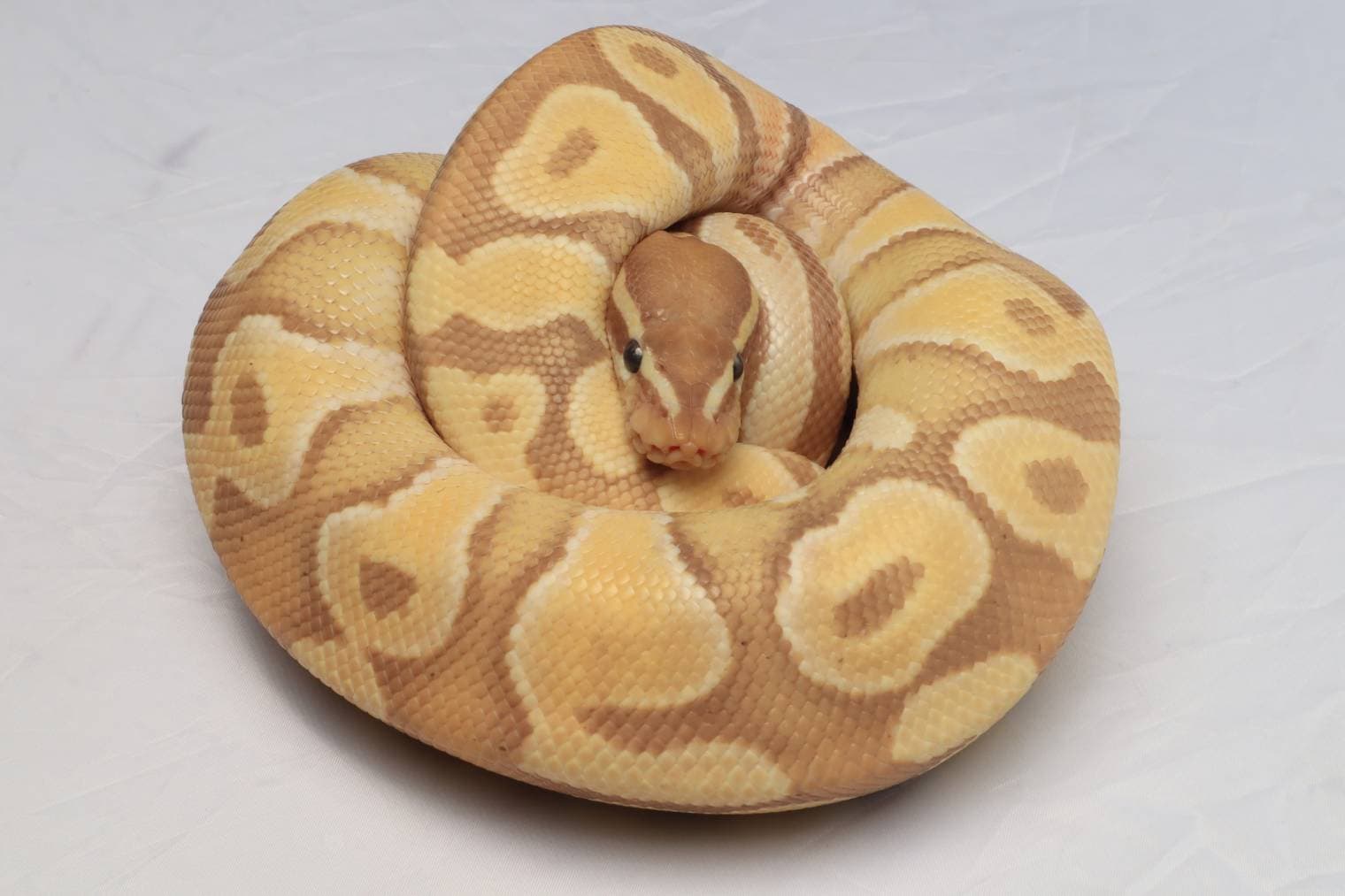
How To Make Your Ball Python Grow Properly
If you want to optimize your ball python’s growth, you want to first rule out any factors that could be contributing to your ball python’s slow growth. If your ball python is in the appropriate living conditions, has a healthy appetite (except for when they refuse food before shedding), and is within the ideal ages for growth, then you are on track to have your python reach their maximum potential size as they age.
If your ball python is fed the right-sized prey according to their age and size, and they have good living conditions and are kept stress-free, then your ball python should grow fast naturally.
There is no guaranteed way to have your ball python grow faster other than proper care and feeding practices. Making sure your ball python is kept healthy is essential for their growth and development which will slow down once they mature.
Conclusion
The adult length of a ball python will depend on their gender, with males growing slower than females. A female ball python can easily reach 6 feet in size, whereas males usually reach around 3 to 3.5 feet in length. Other factors such as feeding and age play a role in your ball python’s growth rate and each ball python will grow at a different rate. A female ball python can easily reach 6 feet in size, whereas males usually reach around 3 to 3.5 feet in length. Other factors such as feeding and age play a role in your ball python’s growth rate and each ball python will grow at a different rate.
Featured Image Credit: Deb Davis, Shutterstock




